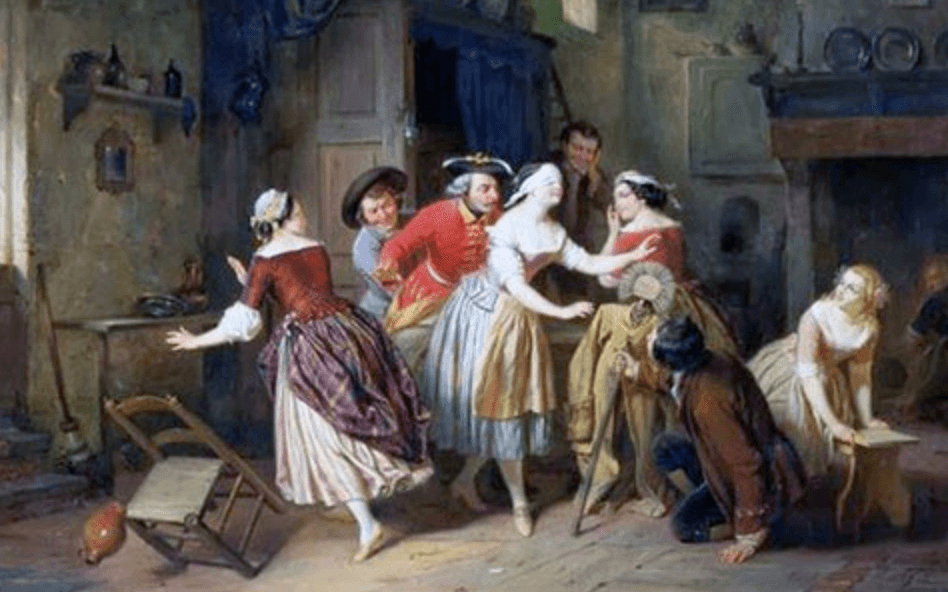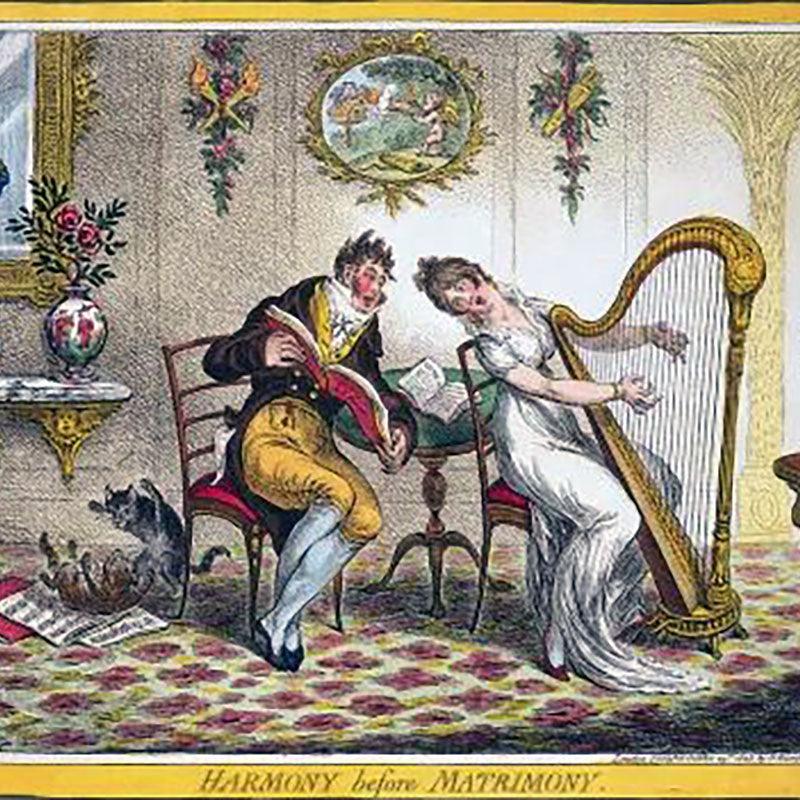The King of Clubs
I expect my surveyor from Brockham with his report in the morning; and afterwards I cannot in decency fail attending the club. -General Tilney, Northanger Abbey
 Every respectable Regency gentleman (and a few who were not exactly so respectable) belonged to a gentleman’s club. Some of the most popular in London were White’s, Brooks’s and Boodle’s. All were very exclusive, with Boodle's ranks including William Wilberforce, David Hume and Adam Smith to name but a few. When a member was accepted into a club, it was known as an “election". If a gentlemen had been a member for say 3 years, others would use phrases such as “three years after his election into so and so" when referring to the individual. Exclusive gentleman's clubs often used a method of voting for or against new members by anonymously placing black and white balls into a special box. A single black ball was sufficient to deny this individual membership to the club, hence the term “blackballed".
Every respectable Regency gentleman (and a few who were not exactly so respectable) belonged to a gentleman’s club. Some of the most popular in London were White’s, Brooks’s and Boodle’s. All were very exclusive, with Boodle's ranks including William Wilberforce, David Hume and Adam Smith to name but a few. When a member was accepted into a club, it was known as an “election". If a gentlemen had been a member for say 3 years, others would use phrases such as “three years after his election into so and so" when referring to the individual. Exclusive gentleman's clubs often used a method of voting for or against new members by anonymously placing black and white balls into a special box. A single black ball was sufficient to deny this individual membership to the club, hence the term “blackballed".
By far the most revered and oldest of London's gentlemen's clubs, popular during the Regency era, was White’s. It was founded as a chocolate shop in 1693 by an Italian, Francesco Bianco, who had changed his name to Francis White. White’s was politically conservative and is still considered today to be one of the most prestigious gentleman's clubs in the world. Originally, the club had mostly been a gambling hub, with members who frequently played high stakes card games such as whist, faro, quinze and hazard.

Brooks's Club, Gaming Room
Brooks’s, in comparison to White's, was a liberal gentleman's club. Whig membership was high and included nobles such as the Duke of Portland, the Duke of Roxburghe, Lord Crewe and Lord Strathmore. As a gaming club established in 1764, Brooks's was located in Pall Mall and like White's, was characterised by high stakes card games. It had been customary for gamblers to play for anything between fifty to ten thousand pounds! Charles Fox and his brothers had been known to lose many thousands of pounds in a single night at Brooks's, and hazard was their customary game of choice.

Boodle's, Exterior.
Last but not least, there have been many varying descriptions of Boodle's that have circulated. It is hard to be conclusive, but it seems to have offered a wider range of gaming than the gentleman's clubs mentioned above. Some sources say Boodle's was the club for country squires and those who rode to hounds in fox hunts. It was not tied to any political party, at least not during the Regency era.

The Athenium, Lobby.
It is thought that The Athenium Club, founded a little after the Regency era in 1824, focused on Ancient Rome and Greece. They supposedly used only Latin to speak to one another, not a problem for the wealthy gentleman who would have been instructed in the language during his years of education.
The Four Horse Club, also called the Four In Hand Club, had originally been a club of wild young men. However, by the early 1800s, it become a much more respectable club for superb drivers. It was a small group with only somewhere between 30 to 40 members at its peak. They did not have a specific meeting place and began to fade out from the gentleman's scene around 1815, disbanding in 1820 and formally ending by 1822. The members reportedly met at set intervals to drive coaches out to Chalk Hill and back.
If you don't want to miss a beat when it comes to Jane Austen, make sure you are signed up to the Jane Austen newsletter for exclusive updates and discounts from our Online Gift Shop.



Leave a comment
This site is protected by hCaptcha and the hCaptcha Privacy Policy and Terms of Service apply.